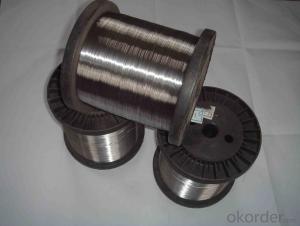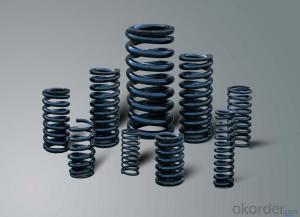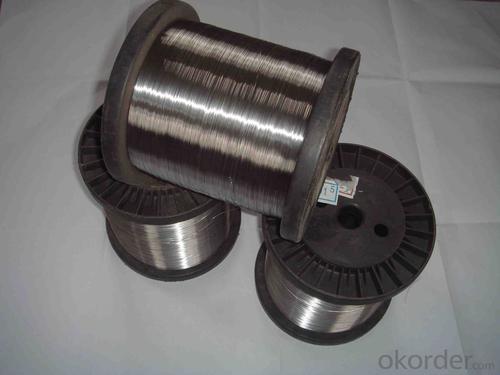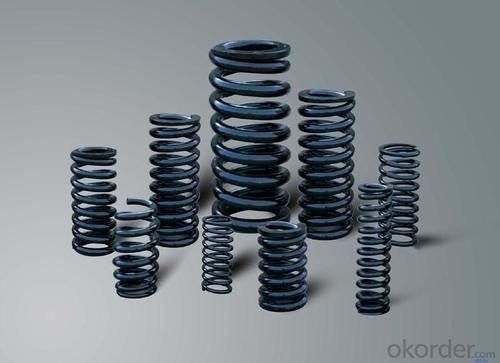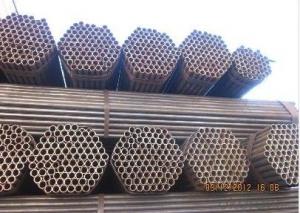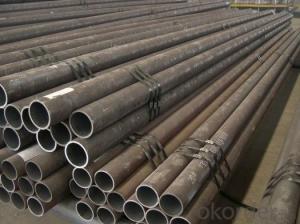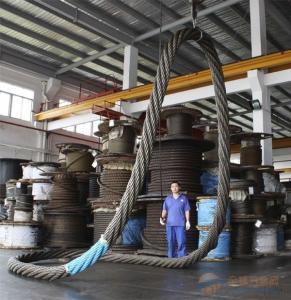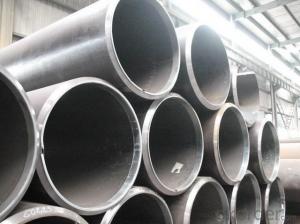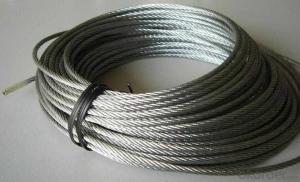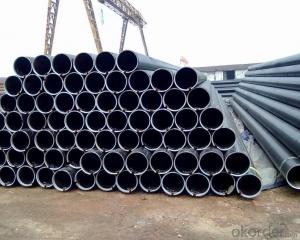302 Stainless Steel Spring Wire Hot Sale and High Quality
- Loading Port:
- Shanghai
- Payment Terms:
- TT OR LC
- Min Order Qty:
- 5000 kg
- Supply Capability:
- 10000 kg/month
OKorder Service Pledge
OKorder Financial Service
You Might Also Like
1.Packing And Delivery
Package: Seaworthy package
MOQ: 0.5 tons
Delivery: 15-20 days
Monthly Output: 100 tons
Payment : 30%T/T in advanced+70% balanced;irrevocable L/C at sight
Remarks: All-risk insurance and accept the third party test
Port : Shanghai
AISI 316 high tensile strength stainless steel spring wire
| Detail as follows: | |
| Standard | AISI,ASTM,GB,SUS etc |
| Grade | 201,202,204,301,303,304,304L,310,316,316L etc |
| Diameter | 0.7mm-14.0mm |
| Surface | Bright or matt |
| Condition | hard |
| Tolerance | +/-0.03mm |
| Length | According to customers’ requirement |
| Packing | Packed by weaved bag or according to customer's requirements |
| Technology | Cold drawn |
| Application | Spring |
| Productivity | 300 tons/month |
| MOQ | 100KG |
| Note | We can produce other standard as the customers' requirement |
1. Competitive price and quality from our own factory
2. Approved by ISO9001, CE, SGS every year
3. Best service with 24 hour`s reply
4. Flexible payment with T/T,L/C , paypal, kunlun bank, western union, etc.
5. Smooth production ability(50000tons/month)
6. Quick delivery and standard exporting package
7. OEM/ODM
- Q: What are the different methods of pipe cutting for steel pipes?
- There are several methods of cutting steel pipes including manual methods such as hacksaw cutting and abrasive cutting, as well as more advanced methods like plasma cutting, laser cutting, and water jet cutting. Each method has its own advantages and is selected based on the specific requirements of the project.
- Q: What is the outer diameter and wall thickness of the welded steel pipe of national standard DN250?
- DN (nominal diameter) 250 is generally the industry said 273, welded steel pipe (spiral steel pipe) thickness is generally between 6-8mm, more common.
- Q: How are steel pipes used in the food processing industry?
- Steel pipes are commonly used in the food processing industry for various purposes such as conveying liquids, gases, and solids, as well as for structural support. They are used to transport ingredients, such as water, oils, and other liquids, from one area to another within the food processing plant. Steel pipes are also utilized for the distribution of compressed air or steam, which are essential for cooking, sterilization, and cleaning processes. Additionally, steel pipes are employed in the construction of equipment and machinery, providing a sturdy and reliable framework for various food processing operations.
- Q: How are steel pipes insulated to prevent noise transmission?
- Steel pipes are typically insulated to prevent noise transmission through the use of materials such as mineral wool, fiberglass, or foam. These insulation materials are wrapped around the pipes to create a barrier that absorbs and reduces sound waves, preventing them from traveling and causing noise transmission.
- Q: What's the material of Q325 steel pipe?
- Plain carbon structural steelIt's a kind of steel material. Q stands for the yield of this material, and the latter 325 means the yield value of this material, at around 325. And the yield value will decrease as the thickness of the material increases.
- Q: How are steel pipes used in the agriculture sector?
- Steel pipes are commonly used in the agriculture sector for various purposes, such as irrigation systems, drainage systems, and structural support for farm buildings and infrastructure. They are also used for conveying water, chemicals, and other fluids, as well as for constructing fencing and livestock enclosures. Moreover, steel pipes are utilized in the construction of machinery and equipment essential for farming operations.
- Q: What are the advantages of PVC pipe and galvanized steel pipe?
- Galvanized steel pipe is also used, because some areas require the use of strength. Moreover, the iron and steel industry is a pillar industry, there are some unspoken rules in it.
- Q: Can steel pipes be used for irrigation pivot systems?
- Yes, steel pipes can be used for irrigation pivot systems. Steel pipes are often used in irrigation systems due to their strength, durability, and resistance to corrosion. They can withstand the pressure and stress of the water flow in pivot systems and are less prone to leaks or cracks compared to other materials. Additionally, steel pipes can be easily welded or threaded together, making them a convenient choice for irrigation systems that require a variety of lengths and configurations. However, it is important to consider the specific requirements of the irrigation pivot system and consult with professionals to ensure that the chosen steel pipes are suitable for the specific application.
- Q: Are steel pipes environmentally friendly?
- Steel pipes can be considered environmentally friendly for several reasons. Firstly, steel is a highly durable and long-lasting material, which means that steel pipes have a longer lifespan compared to other materials like plastic pipes. This reduces the need for frequent replacements and repairs, reducing waste and conserving resources. Secondly, steel is a highly recyclable material. At the end of their lifespan, steel pipes can be easily and efficiently recycled, without losing their properties or quality. This reduces the demand for new steel production, which often requires significant amounts of energy and resources. Furthermore, steel pipes have a high resistance to corrosion, which means that they require fewer chemical treatments to prevent rusting and maintain their structural integrity. This reduces the release of harmful chemicals into the environment and minimizes the impact on ecosystems and human health. It is also worth mentioning that steel pipes are used in various industries, including water supply and wastewater management. Steel pipes are known for their excellent strength and reliability, ensuring the safe and efficient transportation of fluids. This reduces the risk of leaks and spills, preventing contamination of water sources and protecting the environment. However, it is important to note that the production of steel pipes does have some environmental impact. The extraction of raw materials, such as iron ore and coal, requires energy and can contribute to deforestation, habitat destruction, and greenhouse gas emissions. Additionally, the manufacturing process itself generates emissions and waste. Overall, while steel pipes may not be completely free from environmental impact, their durability, recyclability, and resistance to corrosion make them a relatively environmentally friendly choice compared to other materials.
- Q: Can steel pipes be used for oil refineries?
- Yes, steel pipes are commonly used in oil refineries due to their high strength, durability, and resistance to corrosion, making them suitable for transporting various petroleum products and chemicals within the refinery infrastructure.
Send your message to us
302 Stainless Steel Spring Wire Hot Sale and High Quality
- Loading Port:
- Shanghai
- Payment Terms:
- TT OR LC
- Min Order Qty:
- 5000 kg
- Supply Capability:
- 10000 kg/month
OKorder Service Pledge
OKorder Financial Service
Similar products
Hot products
Hot Searches
Related keywords
